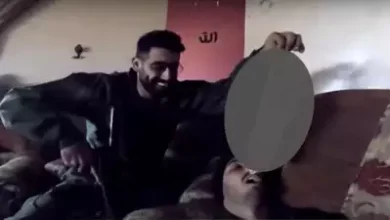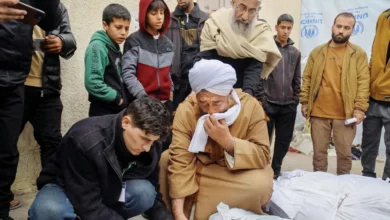Gaza War Seen Through the Eyes of the World Communities
The Israeli army bombed al-Shifa Hospital, the biggest hospital in the Gaza Strip, in an attempt to find Hamas terrorists, and now it has been under siege for more than ten days. Approximately 2,500 displaced individuals, mobile patients, and medical personnel were evacuated from Shifa Hospital, which was once a camp for refugees, as a result of the search. There are still some at the location. The Israeli authorities who claimed the hospital was a crucial Hamas command center are coming under increasing criticism as the world keeps a close eye on the situation. Officials said that the military discovered firearms and other equipment purportedly owned by the extremist organization, including a tunnel.
After six weeks of fighting, a number of nations and international organizations have begun denouncing the crimes committed against Palestinian people and the ratcheting up of hostilities under the pretext of a counteroffensive against Hamas. Over 11,000 people have died in Gaza, and the level of destruction and wounded is unimaginable. Nowadays, a lot of people worry that there may be a bigger conflict in the Middle East. The United States has so far opposed resolutions from the UN that call for immediate and prolonged humanitarian pauses in Gaza.
The United States, which is seen to have the most authority to end the conflict in Gaza, has been providing Israel with unending military supplies in an effort to “prevent escalation,” attract other parties or countries, and strengthen its own defenses. Despite denouncing the airstrikes on civilians, US President Joe Biden has come under fire for doing nothing to stop the ongoing devastation and depravity the Jewish government is delivering to Gaza’s civilian population.
The US’s “credibility and interests across the world are at stake” in this conflict, according to an open letter sent to Biden last week by The Elders, a worldwide nongovernmental organization brought together by Nelson Mandela that is composed of prominent leaders, peace campaigners, and human rights advocates.
Antisemitism and islamophobia are already being fueled by the violence, even in the United States. They said that although the US cannot end the Israel-Palestine problem on its own, it can assist in forming a coalition to reestablish the trust necessary for communication. “It undermines your other objectives in the Middle East, Ukraine, and elsewhere,” they wrote.
Far from the war, political polarization has been more intense. There has been a lot of false and misleading material on TV and, more so, the internet. Numerous parties, including Israeli authorities, media outlets, influencers, and well-known online personalities, have contributed to the dissemination of false information intended to conceal the extent of Gaza’s destruction relative to Israel.
Only 14 nations voted against a ceasefire, while 120 voted in favor, demonstrating how the conflict has deepened the divide between the West and the Global South. Not only did the leaders of the US and the UK and Germany abstain from voting, but they have also been among the most ardent backers of Israel. Forty-five refrained, including them.
Legislators in Ireland, one of the few countries in the West to vehemently oppose Israel’s occupation of Gaza, engaged in a contentious discussion about the expulsion of Israel’s ambassador, Dana Erlich, until the implementation of a ceasefire between Israel and Hamas. “No longer enjoying diplomatic status in Ireland” is what Mary Lou McDonald of Sinn Féin, the nationalist party that is expected to win the next election, stated of the Israeli envoy. Nonetheless, Parliament rejected the proposal.
The head of the Ad Hoc Liaison Committee, an international donor organization to the Palestinian territories, is Norway, another country in the West that supports Palestinian rights. In the negotiations between Israel and the Palestine Liberation Organization (PLO) in 1992–1993, Norway also served as a mediator for the Oslo Accords, which allowed for a short period of Palestinian self-rule.
Prominent figures from the Global South have shown solidarity with the Palestinians in their quest for justice. Israel’s bombing campaign has drawn condemnation from Indonesia, Malaysia, Turkey, Iran, Iraq, Oman, and other countries with sizable Muslim populations; nevertheless, support for these criticisms has come from Brazil and South Africa, who have voiced serious concern and urged for a stop to the carnage.
Luiz Inacio Lula da Silva, the president of Brazil, went so far as to refer to Israel’s invasion on the Gaza Strip as a “genocide.” He had said, “To be honest, I don’t know how a person can go to war knowing that the outcome of that war is the death of innocent children.”
In the meanwhile, Russian President Vladimir Putin and other members of the BRICS group are gathering virtually in South Africa to discuss the Gaza War. The African National Congress (ANC), which is in power in South Africa, has often drawn parallels between the current conflict and its own fight against apartheid. Additionally, the administration has made the decision to halt diplomatic ties with Israel until a cease-fire agreement is achieved.
How long will it take for the West to pay attention if so many different worldwide groups demand that the conflict end? Thus far, the declarations made in public and the voting tendencies of Western delegates at the UN indicate that a resolution is still a ways off.







